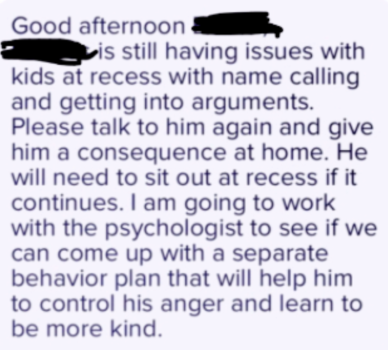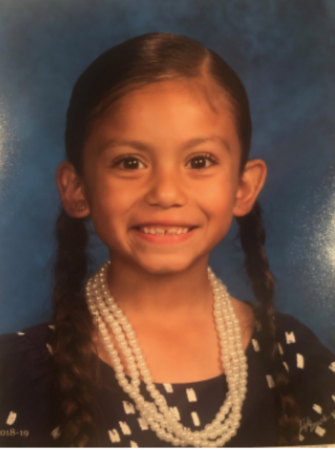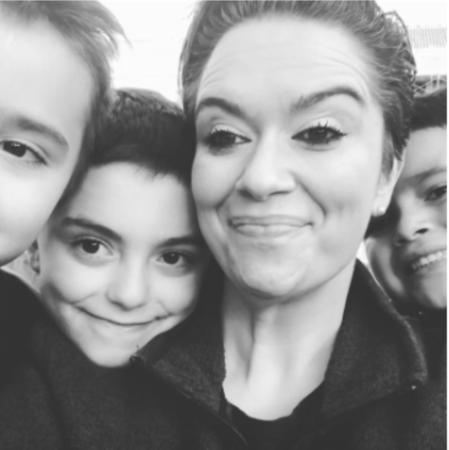Within the last month three different mothers have shared harmful encounters they have had with teachers and school staff. These incidences are examples of how some educators feel and act as though they know what is best for children, even more so than their parents and in one case a student’s physician. As an educator, I know that the actions educators take are vastly well intentioned even when misdirected. I share these examples and tell you that I, as a teacher and administrator, have witnessed years of the same behavior-educators stepping in as parents, as opposed to engaging them as lead partners in their child’s educational experience.
For some reason, as opposed to engaging parents as lead partners about concerns or observations, educators leap into action and overstep the educator boundary and step into the parent realm. These three incidents happened to Latino children. Two in schools where the majority of students receive free/reduced lunch, and the majority are English Learners. One of these incidents happened on the other side of the Country in Massachusetts, and the other two in San Diego County. One of these schools sits minutes away from the US and Mexico International border and I worked there as a school administrator.
Because I am educator, many of my friends who are parents will turn to me when they have questions or need guidance. Recently, I received a text message from a friend that I’ve known for almost 30 years. She sent me this screenshot of a text received from her son’s teacher.
My friend was angry and in despair. She told me, “I know my sons not an angel but who is she to tell me how to discipline my son? Who is she to assume that my son does not have consequences? I’ll be damned if some lady is going to tell me my son needs a psychologist.”
My friend wanted to talk through her response and was clear that she did not want to come across as a mother in denial. Very fortunately, the principal of the school responded as I would hope any principal who cares about students and staff would. She acknowledged how the message could be perceived as inappropriate and assured my friend that she was working with the teacher on, “…establishing a classroom climate that is positive for all.”
About a week and a half after this incident I heard one of my colleagues, Maria, who was very upset talking on the phone. She was on the phone with her daughter’s second grade teacher who stated that Tiffany did not have on the appropriate school uniform. She informed Maria that the only way Tiffany would be allowed to participate in picture day would be if the school provided her with a loaner shirt. There was no way Maria was going to allow the school to dress her child. She was upset and confused because when she dropped Tiffany off that morning the teacher commented on how adorable she looked. There were no comments made about her outfit being out of compliance with the uniform policy. Maria hung up, spoke to me and asked me for support. I spoke with the teacher and informed her that unless she could show me California Education Code, the law that governs education in our State, that stated that she had the right to deny Tiffany from participating in picture day due to uniform (a policy for which her parent’s could sign an opt out waiver), then she would be allowing her to take pictures, as her mother sent her. The teacher ultimately backed down and Tiffany was able to participate.
The first week of October I was at a conference in Montgomery, Alabama with Keri Rodrigues, an amazing parent advocate from Massachusetts. Our last day together, she was unable to be fully present because she was fielding calls from her 5th grade son’s elementary school over 1200 miles away. Keri’s son has an IEP and has been diagnosed with Attention Deficit Hyperactivity Disorder. Within the first two hours of the school day he had already run from school campus twice. Three different times throughout the afternoon the school staff called to have Keri talk to her son on the phone. While she was stressed and worried she was able to calmly redirect him and coordinate with the school staff. Then, as we ate lunch, she took a call from the school nurse. Her son’s physician has ordered two different medications be administered during the school day. The school nurse decided that since one of the medications was taken a bit later than normal, that the second medication would not be administered. At all. Keri was beyond angry and questioned why the nurse called to inform her that she did not administer the medication, as opposed to calling her to discuss her concerns and make a collaborative decision about her son’s health. The nurse became defensive and claimed that she had the right to make this medical decision. There was no apology. There was no attempt to take responsibility for putting a child’s health at risk. There were no attempts to work with Keri before this nurse made a decision.
Why is it that some educators feel so powerful in their role that they believe they have the right to tell parents what to do? Or that they can make health decisions for another person’s child? I understand how demanding the role of teachers and other educators is in classrooms and schools. But we made the choice to accept this role with all its blessings and challenges. Our classrooms, schools, and educational systems are better and stronger when we fully engage with each parent as a lead partner.
Marisol Rerucha
Latest posts by Marisol Rerucha (see all)
- Recordando a Columbine: “Me Llaman Sr. De” - April 22, 2019
- Remembering Columbine: “They Call Me Mr. De” - April 22, 2019
- Conozca a Leticia Cazares, una Guerrera de Chula Vista y Defensora de la Justicia Social, Candidata a la Junta de Gobierno de Southwestern College - November 5, 2018
- Meet Leticia Cazares, a Chula Vista Warrior and Social Justice Advocate, Candidate for Southwestern College Governing Board - November 5, 2018
- Los Educadores Deben Involucrar a los Padres, No Tratar de Reemplazarlos - October 22, 2018




